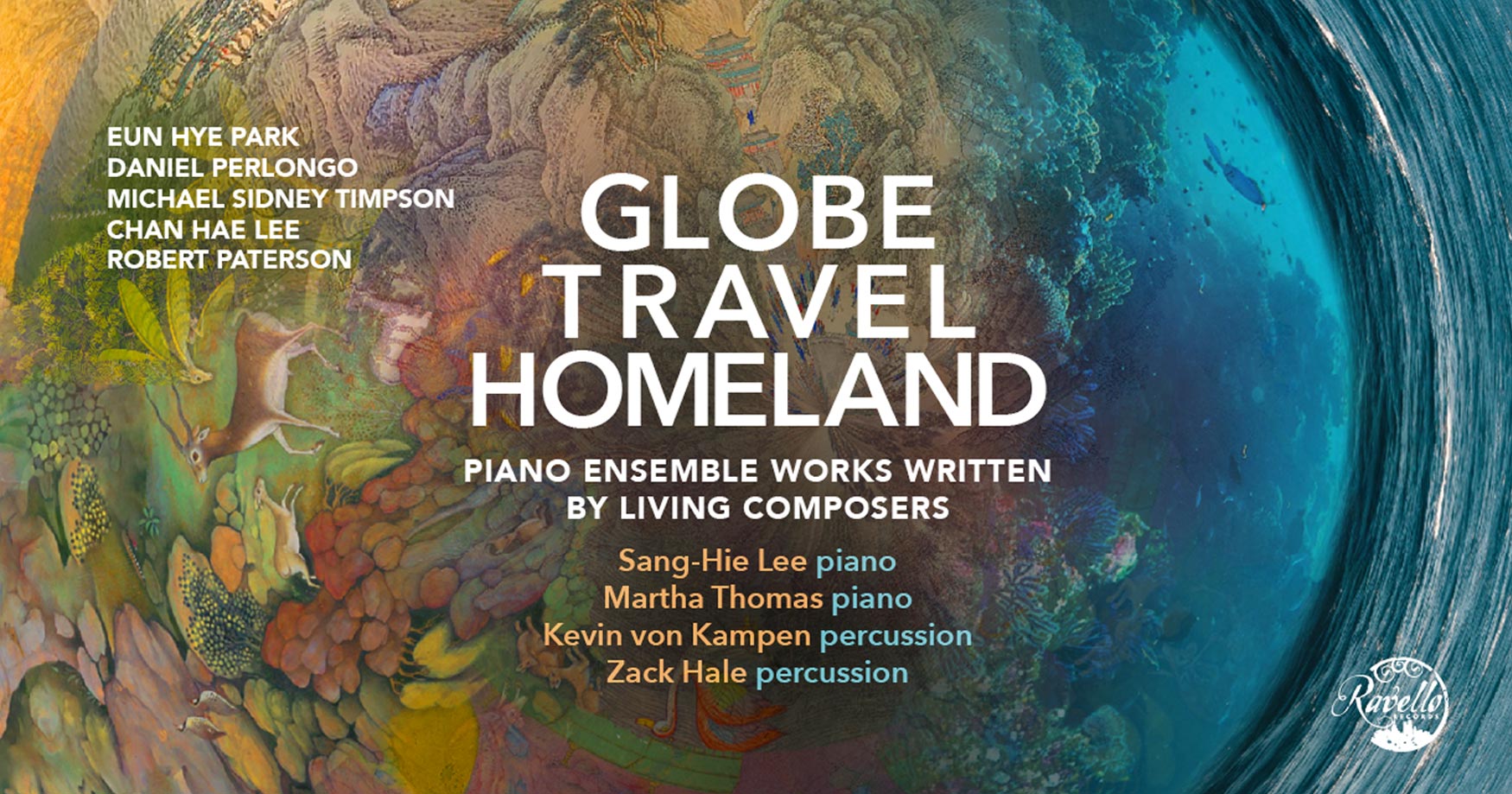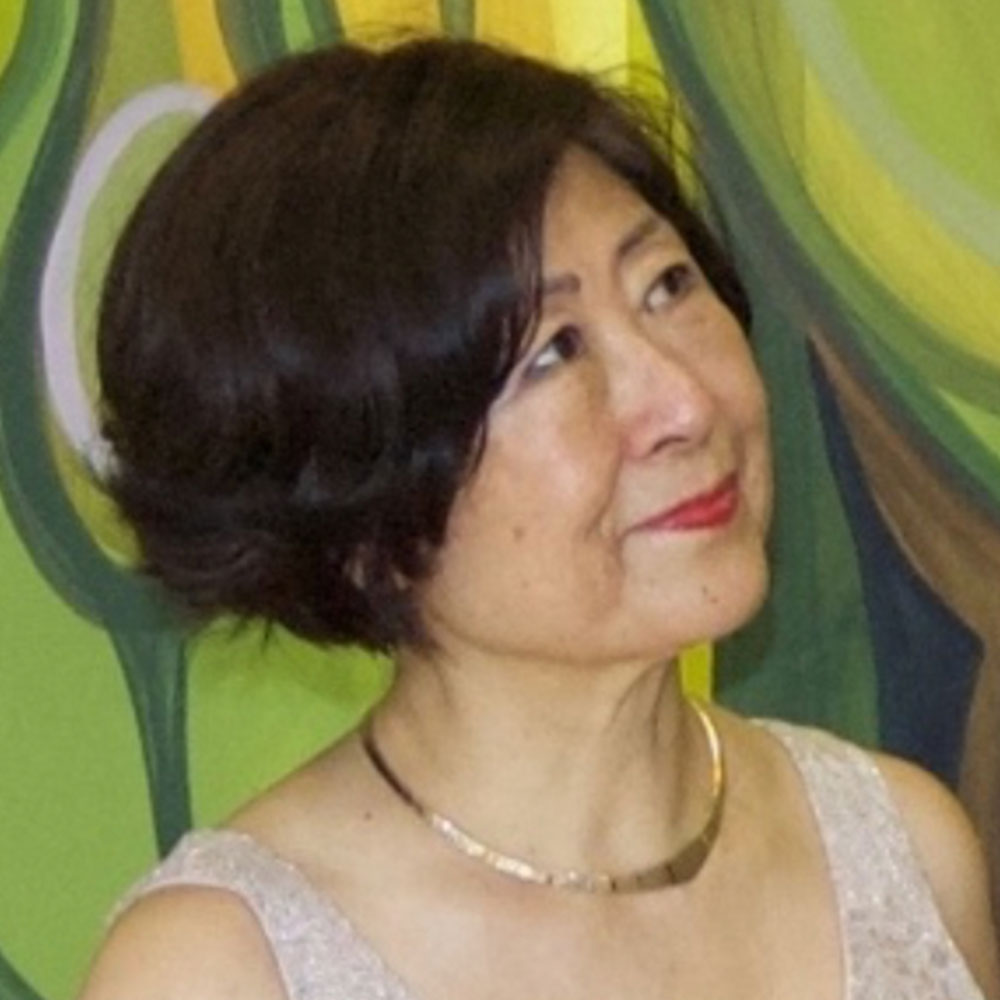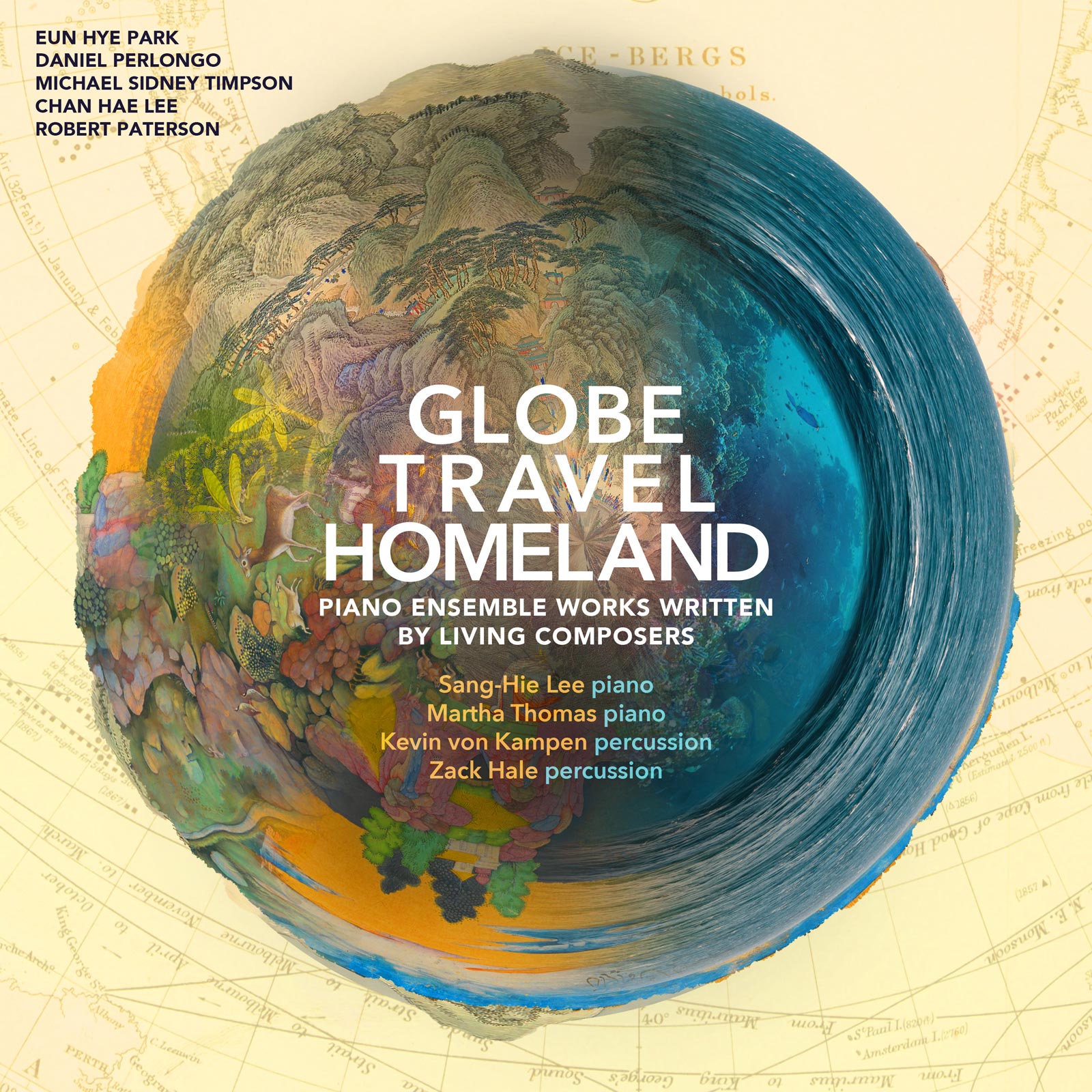
The piano is the powerhouse of musical instruments: with its vast tonal range and its ability to simultaneously supply chords and melodies, it generally takes the dominating place in virtually any setup. So what happens if you compose and play music for two of these behemoths? Pianists Sang-Hie Lee and Martha Thomas answer this question on their aptly-titled new album GLOBE, TRAVEL, HOMELAND.
Today, Sang-Hie is our featured artist in “The Inside Story,” a blog series exploring the inner workings and personalities of our composers and performers. Read on to learn about her research in performance science, and the concert that sparked her interest in the subject…
When did you realize that you wanted to be an artist?
When I was 3 or 4, when asked what I wanted to be, I would always answer pianist. I have not had a lesson or seen a performance at that point. So it is a mystery. My father asked if I wanted ballet or piano lessons at age 6, and I said piano. I took lessons all through my school years. When it was time to select a college major, I was much more conflicted because I was all-around active and equally good at math, english, music, and sports. My mom and I discussed whether a music teacher would be a safe bet being a girl. So I went to a music school with a lot of questions about what it involved to be an artist. All through college, I excelled but was always uncomfortable. It took my career as a performer, teacher, and researcher on psychophysiological science in universities to finally become comfortable with my profession.
What was your most unusual performance, or the most embarrassing thing that happened to you during a performance?
I was playing a doctoral recital with a 70-minute program without an intermission. I did perfectly fine until on stage, I began making mistakes – this was a total surprise. I spent the rest of my professorial career researching performance science – psychology and physiology – finally to feel that I now have overcome performance anxiety and am competent in guiding students with a shortcut to “get” it. The answer is in settling life situations even before getting to learning the music. Then there are many ways to master “really” learning the music.
If you could make a living at any job in the world, what would that job be?
I like my job, working with young musicians – teaching, researching, and performing. Had I learned the science and insights I have now, I would have liked to perform more actively.
What was your favorite musical moment on the album?
In the album, I finally expressed the Frozen Land with the ethnic cultural nuances of Korean dance and soul. I also got to feel the Argentinian Tango in which there was definitely a person scaped in the three different landscapes of movements.
What does this album mean to you personally?
The entire live recital was 90 minutes, and my partners — two percussionists and piano duo partner Martha Thomas — stayed with me the whole time. This was a feat at my age — so it means a lot that I could learn these very difficult pieces and play them with soul and spirit and comfortable technique.
Is there a specific feeling that you would like communicated to audiences in this work?
This is the second set of a piano duo album that Martha Thomas and I had undertaken. Learning new music has its challenges and ups and downs, but the real beauty is that you can use all the technical prowess and coloring involved in Beethoven, Mozart, Debussy, and Stravinsky. The living composers featured in these CD sets are truly remarkable artists. It was a total joy and pleasure learning and presenting them.
I was 82 when we performed the 90-minute concert and recorded for the CD. I am a bit surprised. Is this useful? My partner was 65 or so and two percussionists were young.

Dr. Sang-Hie Lee, Professor of Music at the University of South Florida, is an active teacher, pianist, researcher, author, and cross-disciplinary administrator. As the founder of Ars Nostra, she performs piano ensemble music by significant living composers: her music is featured on six albums by Ravello, Centaur, Capstone, and Albany labels. Lee is the principal author of Scholarly Research in Music: Shared and Disciplinary-Specific Practices (McGraw Hill, 2012-2013, Routledge 2017, 2022). She is the primary editor of Perspectives in Performing Arts Medicine: A Multidisciplinary Approach (Springer 2020) and was the founding Editor of the Cultural Expressions in Music Monographs Series (College Music Society 2008-2014). She is the author of 74 scholarly publications, has presented 85 conference papers, keynotes, and lectures, hosted seven international conferences, and performed numerous solo and chamber-music concerts in the United States, South Korea, China, Serbia, Brazil, Italy, and Canada.

